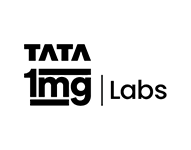
Glucose - Random
Understanding Glucose - Random
What is Glucose - Random?
The Random Blood Glucose (RBG) test is a method for measuring the amount of glucose or sugar circulating in a person’s blood. This test can be done at any time of the day and used for diagnosis of diabetes & prediabetes. The test can also be done to check the efficacy of treatment for diabetes.
Borderline or slightly elevated RBG level could indicate prediabetes. While high RBG level indicate diabetes and need immediate medical intervention.
Lifestyle modifications such as weight loss and exercise can help in maintaining normal blood sugar levels.
What is Glucose - Random used for?
-
As a part of routine preventive health check-up
-
If you have symptoms of high blood glucose such as increased appetite, increased thirst, increased urination, and blurring of vision
-
If you have risk factors for diabetes like high blood pressure, cardiovascular disease, high cholesterol, obesity, or family history of diabetes
-
If you are pregnant
-
If you are already a diabetic
What does Glucose - Random measure?
The random blood glucose test is done to measure the levels of glucose at any point of the time. This test provides speedy diagnosis of diabetes. Also, it is helpful for diabetic patients who require a supplementary dose of insulin in case of emergency.
Glucose is the main source of energy for the body. Carbohydrates consumed in the diet are broken down in the body to form glucose, which is absorbed by the intestines and transported by the blood to various organs. The cells of these organs utilize the glucose to produce energy when required, and the excess is stored either as glycogen in the liver for short-term storage or in fat tissues as triglycerides for long-term storage. The uptake, utilization, and storage of glucose after it is absorbed in the intestine is facilitated by a hormone called insulin, which is secreted by the pancreas. Insulin influences the transport of glucose to the organs like heart, brain, working muscles, etc. It also directs the storage of excess glucose. The action of insulin reduces sugar levels in the blood.
After a meal, the levels of sugar increase in blood and insulin is secreted in response until they become normal. If glucose levels fall too low in blood, another pancreatic hormone called glucagon is released. This hormone directs the liver to convert stored glycogen into glucose and releases it into the blood. The insulin and glucagon hormones create a feedback mechanism to keep blood glucose levels within the normal range. Imbalance in their activity causes an excess or shortage of blood sugar.
The random blood glucose test helps to determine the levels of glucose at any point of the time. To confirm the diagnosis, follow-up tests are required which include Glucose - Fasting Blood and Oral glucose tolerance test.
High levels of sugar in the blood indicate diabetes or resistance to insulin. Type 1 Diabetes is caused when insulin is not produced or produced in very little quantity. Type 2 Diabetes is caused when insulin produced is not utilized effectively by the body. In both these cases, blood sugar levels rise, while cells remain deprived of nutrition.
Interpreting Glucose - Random results
Interpretations
-
According to American Diabetic Association and WHO, if your random blood glucose is greater than or equal to 200 mg/dl, you have diabetes.
-
If the levels are between 140 and 200 mg/dl, you are at increased risk of developing diabetes (Pre-diabetic).
Answers to Patient Concerns & Frequently Asked Questions (FAQs) about Glucose - Random
Frequently Asked Questions about Glucose - Random
Q. What are the symptoms of Hypoglycemia?
Q. What are the risk factors for Diabetes?
Q. What are the common complications of diabetes?
Q. Is there any risk associated with this test?
Q. Is there any special preparation required for the test?
Q. What factors other than hormones and diet affect blood sugar levels?
Q. What other tests can be prescribed to diagnose diabetes in case the result of Fasting Blood Glucose test is not normal?
Q. What is Hyperglycemia?
Q. What are the symptoms of Hyperglycemia?
Q. What is Hypoglycemia?
Book a Glucose - Random test at home near me





Other tests









